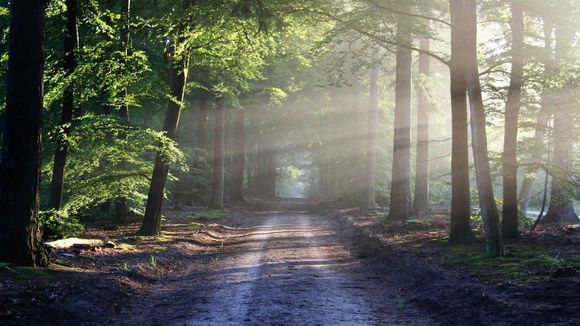Why spending time in nature
Our modern life is such that most people in developed countries live in large cities, cut off from nature. Not only that, but everyday life is so busy that physical activity and practicing sports are kept aside or are compromised by the dirty air on the street or small gyms and spaces. Besides all this, in the last two years, another factor has intervened - the world pandemic of Covid-19, which has taken us even further away from nature than closer to it. By reducing our social contacts and isolating ourselves from the world around us, it seems natural not to make an effort to spend time outside, even if we have done it before.
What does science say? More and more studies are emerging, pointing to different benefits of spending time in natural environments (such as parks, forests and beaches). For example, living in a greener urban environment is associated with a decrease in blood pressure, a reduced likelihood of cardiovascular disease, diabetes, obesity, asthma and improved overall mood and feelings for life.
120 minutes in nature are needed weekly
A research team from several universities in 2019 was able to determine for the first time a recommended time minimum of time spent in nature, which leads to improved health [ref.1] . It's about at least 120 minutes a week in pure nature.
And a year before this study, doctors in Scotland have the right to prescribe to their patients nothing else, but activities in natural environemnt [ref.2]. For example, to sufferers of chronic diseases, mental difficulties, stress or heart disease, doctors give a list of certain routes where certain types of birds or plants can be observed. Experts believe this new approach will make people more involved in their own health and take more care of it. They see it as an additional part of treatment to accompany conventional methods with drugs.
Canadian doctors are now allowed to prescribe nature
The idea of doctors being allowed to prescribe time spent in a natural environment is already a reality in Canada.The initiative is of the BC Park Foundation [ref.3].The main advisor of the program is the family doctor Dr. Melissa Lem, who is also an associate professor at the University of British Columbia. Motivating the goals of the program, she says:
"A few years ago, a relatively large meta-analysis was published on several diseases such as: hypertension, cardiovascular diseases, premature births, mental health. The study evaluated and linked time spent in nature or green places to a reduced risk of all these listed diseases."
Dr. Lem also explains that the recommendations in the new programme are based on studies showing that at least 2 hours a week is needed to spot health improvements.
Just like in Scotland, Canadian doctors will be offering their patients how to make use of their time in the beautiful areas of the country. Many of them are even applicable to everyday activities in urban environments.
Where else such programs exist
Except in Canada and Scotland, time prescribing programs in nature are particularly popular in the US [ref. 4] . U.S. citizens have access to many such initiatives, though they vary widely and vary from state to state.
